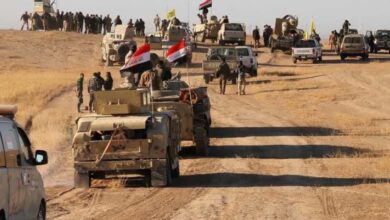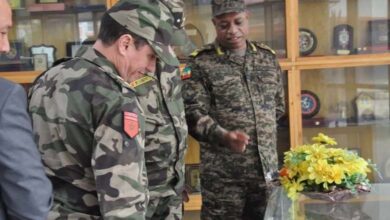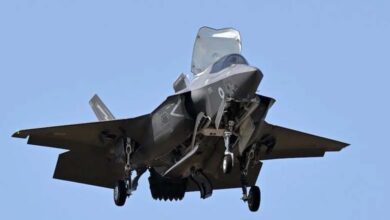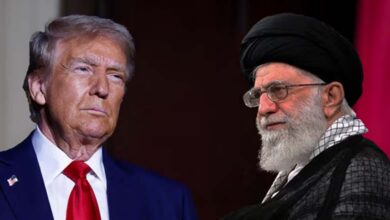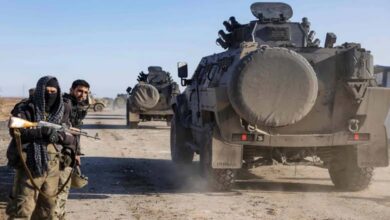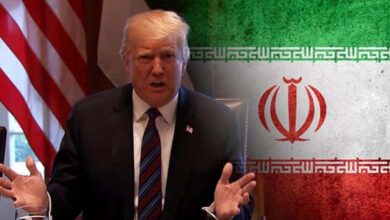Russia Warns Against Using Tactical Nuclear Weapons to Strike Iran’s Fordo Facility
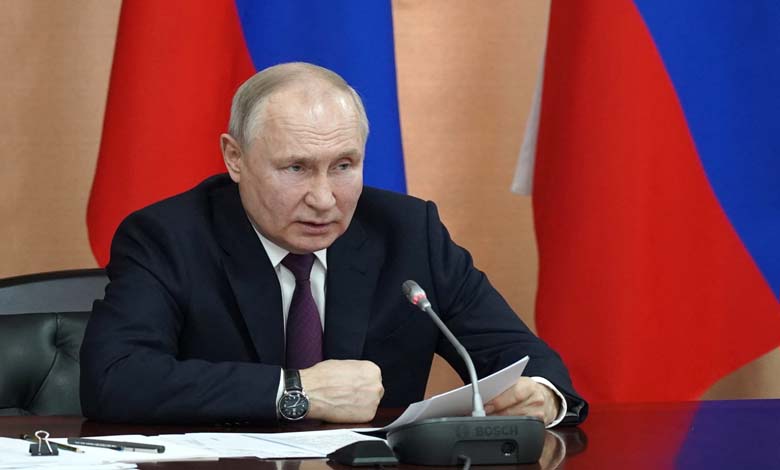
Russia has issued a stern warning to the United States and Israel against any intention to use tactical nuclear weapons or strike Iranian nuclear reactors, stating that such an action could lead to an environmental catastrophe akin to the Chernobyl disaster, with repercussions across the region, including the Gulf and Central Asia.
-
Iran-Israel Escalation: Mass Launch of Evacuation and Withdrawal Phases
-
Western Maximum Pressure Campaign to Prevent Iran from Acquiring Nuclear Weapons
-
Anticipation and Preparations in Israel for a Double Attack from Iran and Yemen
In a statement carried by Russian media, Kremlin spokesman Dmitry Peskov said on Friday that any potential use of tactical nuclear weapons by the United States in Iran “would be a catastrophic development,” stressing that even if this scenario stems from media speculation, it must be taken extremely seriously.
His remarks came in response to what he described as “media reports,” which suggested that Washington was considering using a tactical nuclear weapon to destroy Iran’s uranium enrichment facility in Fordo, which lies deep within a mountain and is believed to be impervious to conventional weaponry. The Guardian reported that Pentagon officials had discussed intelligence assessments suggesting such a strike would require a preliminary conventional assault, followed by a direct tactical nuclear strike by a B-2 stealth bomber.
-
A New Deal: Is Iran Expanding Its Missile Stockpile?
-
“Iran Nuclear Deal”: Diplomatic Efforts to Contain Escalation
-
Iran and Niger: Security Cooperation or Uranium Enchantment?
However, the paper clarified that President Donald Trump has not formally proposed this option, and it has not been discussed in recent Situation Room meetings at the White House attended by Defense Secretary Pete Hegseth and Joint Chiefs Chairman General Dan Caine. On Thursday, Trump stated that “a decision on potential U.S. involvement in the Israeli-Iranian conflict will be made within two weeks.”
Russia’s warnings go beyond politics, highlighting environmental and radiological threats. Moscow emphasized that any attack on nuclear reactors, whether conventional or nuclear, would expose the entire region to radioactive contamination, reviving memories of the 1986 Chernobyl disaster.
-
Iran Nuclear Talks Return to Rome… Fifth Round Overshadowed by Doubt
-
Iran’s Fath-360 Missiles to Russia: Military Significance and Potential Impacts
Alexey Likhachev, head of Russia’s state nuclear energy corporation Rosatom, confirmed that Russian specialists are still operating at Iran’s Bushehr nuclear plant, saying the situation there is “normal and under control.” He added, “We hope Russia’s message has been received by Israel, and that no reckless steps are taken that could lead to disastrous consequences.”
Likhachev had earlier warned that any strike on the Bushehr facility could lead to a Chernobyl-like nuclear disaster, noting that the fallout could affect not just Iran, but the Gulf waters, neighboring countries like Iraq, Kuwait, Bahrain, and Qatar, and even extend to Pakistan and Afghanistan.
-
Gulf and Europe Strengthen Defense Cooperation in Face of Iranian Escalation
-
Iran’s Nuclear Program Back in the Spotlight… and Trump Seeks Political Breakthrough
Meanwhile, Dmitry Medvedev, deputy chairman of Russia’s Security Council, wrote on X (formerly Twitter): “Any attack on nuclear facilities, especially amid sharp regional tensions, is unacceptable… Everyone must remember that such actions could repeat the Chernobyl tragedy, with devastating impacts on the environment and populations.”
Medvedev also criticized recent Israeli remarks, calling the confrontational rhetoric by the Israeli defense minister about the “fate of Iran’s Supreme Leader” a dangerous overreach that could lead to military action against nuclear sites.
-
Washington Charts a New Course for Nuclear Negotiations with Tehran by Sidelining Europeans
-
From Natanz to Arak: Iran’s Key Nuclear Facilities
These statements come amid escalating regional tensions, particularly in light of ongoing uncertainty surrounding Iran’s nuclear program and increasing indirect clashes between Israel and Iran through airstrikes and proxy warfare in Syria, Iraq, and Lebanon.
Iran’s Fordo facility, located beneath a mountain near Qom, is considered one of the most fortified nuclear sites in the country. The Pentagon previously deemed it “undestroyable” with conventional weapons, leading some to float the option of tactical nuclear use, despite its catastrophic implications.
-
Iran Reshuffles Its Proxies in Yemen and Iraq amid U.S. Strikes
-
Drill or Disengagement? Has Iran Abandoned Its Regional Arms?
Amid this escalation, regional and global concerns are rising about any military action targeting nuclear sites in Iran. Any radioactive leak could paralyze health and environmental infrastructure in multiple countries and disrupt maritime traffic in the Gulf, a critical artery for global energy supply.
While official U.S. sources currently rule out the nuclear option, Russia’s warnings serve as a stark alarm—especially as they come not only from the Kremlin but also from scientific and technical bodies in the nuclear field.
-
Iran’s Nuclear Program: Tehran Awaits Trump’s Message via an “Arab Country”
-
“A Russian Seat” in the Nuclear File… Talks with Iran’s Ambassador
-
Iran and Russia: A ‘Fragile’ Partnership at Risk of the ‘Wedge of Discord’
-
Iran Prepares for Imminent Sanctions with Nuclear Talks with European Powers
-
“Iran’s Nuclear Program”: IAEA Condemnation and Tehran’s Response
-
Iran’s Nuclear Program: What is the “Wisest” Path for the U.S. to Face It?
-
“Surprise” in Israeli Attack on Iran: Advance Warning of Date and Targets?
-
Missile Defense: Iran or Russia? Ukraine Angered by Israel’s “Special Treatment”
-
Iranian MiG-29s: Can they fend off the impending Israeli attack?
-
How did Iranian missiles breach Israel’s “Dome”? 4 Reasons
-
Telegram Messages Reveal: Was Russia Well-Prepared for the Ukrainian Attack and Border Incursion?
-
Washington Secretly Warns Tehran of Suspicious Nuclear Activities



